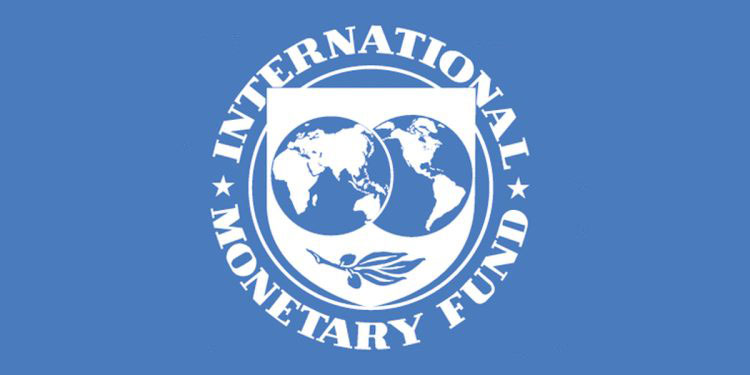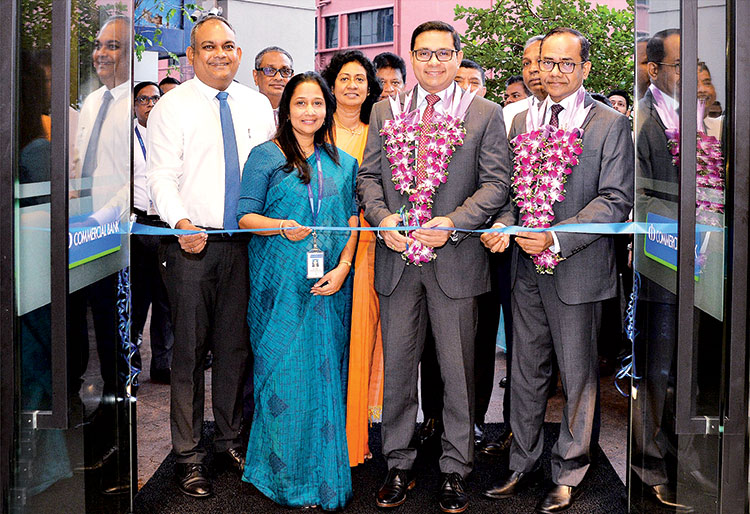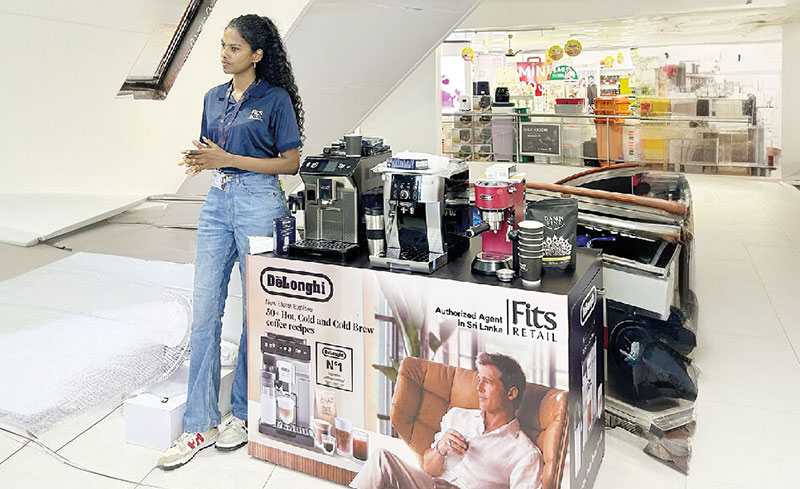Business
JAAF says its membership strictly abides by CBSL laws on repatriating export income

Reiterates that apparel sector brings back entirety of its export proceeds to Sri Lanka
Commends Governor’s remarks on the need to periodically relax repatriation and conversion requirements
The Joint Apparel Association Forum (JAAF) asserts that its membership strictly abides by the Central Bank laws on repatriating export income, reiterating that the apparel sector brings back the entirety of its export proceeds to Sri Lanka. Issuing a press statement JAAF said that Governor of the Central Bank of Sri Lanka (CBSL) Dr Nandalal Weerasinghe affirmed this in an interview on December 08th stating, “Of the exports in September and October, exporters have repatriated or brought 100% of export earnings into our banking system. I want to make it very clear that based on the data for those two months, exporters are not keeping money abroad”.
The Governor went on to say that in the case of the apparel sector, the industry refers to a local value addition of 50%. The CBSL investigations have confirmed that 25% of export proceedings in average have been directly converted to rupees by the exporters, and that the CBSL was looking into the remaining 25% of export proceedings. He acknowledged, however, that this may be due to exporters utilizing these dollars for approved local purchases. These would include the purchase of both diesel from CPC and LIOC, and domestically produced raw materials which are required for the industry.
In light of the above, JAAF wants to reiterate that under the existing regulations set out by CBSL, exporters are permitted to make outward payments for purchases of raw materials, and the remaining proceeds are converted automatically by the respective commercial banks on the seventh day of the following month.
In addition to payments made to overseas suppliers, the growth of the local supply chain also means that apparel companies could pay up to 25% of their inward foreign currency remittances to indirect exporters in Sri Lanka. As mentioned by the Governor, these additional dollar payments may not be accounted for properly which has led to misconceptions surrounding the industry’s foreign exchange conversions.
Given the current economic milieu in the country, companies use a considerable portion of export proceeds to purchase raw materials, fuel and other items essential for seamless operations in the event of unforeseen crises. This is aligned with a preparedness formula which nearly all exporters have implemented, having learned lessons from crises experienced in the last three years.
Reiterating that the industry has been a mainstay in contributing towards vital essentials for the country including fuel, medicine and food during the worst of the financial crisis, JAAF members are acutely conscious of the crucial role they play in keeping the economic wheels turning. The Governor also placed on record his appreciation to the apparel sector for their continued support.
“We are confident that companies in our membership have been abiding by the law, ensuring that export proceeds are repatriated for the economic benefit of the country. JAAF member companies have and will continue to comply with the existing regulations and will strive to complement all efforts taken by the Central Bank of Sri Lanka and the Government in providing much-needed assistance to all stakeholders of the economy, to redirect Sri Lanka’s economy to a path of recovery and growth.”
The Governor also spoke of reconciling the exports of the top 100 exporting companies to establish both the direct conversion and the amounts paid in foreign currency to local suppliers. JAAF is committed to working with CBSL to ensure that this reconciliation is done at the earliest.
JAAF member companies acknowledge the Governor’s remarks on the need for strict foreign exchange repatriation and conversion requirements over the short term to tide over current economic hardships. JAAF similarly commends the Governor’s remarks on the need to periodically relax the repatriation and conversion requirements “as it does not work” and move towards creating a suite of positive incentives that will encourage the voluntary repatriation and conversion in line with global standards and practices.
Business
IMF staff team concludes visit to Sri Lanka

An International Monetary Fund (IMF) team led by Evan Papageorgiou visited Colombo from April 3 to 11, 2025. After constructive discussions in Colombo, Mr. Papageorgiou issued the following statement:
“Sri Lanka’s ambitious reform agenda supported by the IMF Extended Fund Facility (EFF) continues to deliver commendable outcomes. The post-crisis growth rebound of 5 percent in 2024 is impressive. Inflation declined considerably in recent quarters and has fallen to ‑2.6 percent at end-March 2025. Gross official reserves increased to US$6.5 billion at end-March 2025 with sizeable foreign exchange purchases by the central bank. Substantial fiscal reforms have strengthened public finances.
“The recent external shock and evolving developments are creating uncertainty for the Sri Lankan economy, which is still recovering from its own economic crisis. More time is needed to assess the impact of the global shock and how its implications for Sri Lanka can be addressed within the contours of its IMF-supported program.
“The government’s sustained commitment to program objectives is ensuring policy continuity and program implementation remains strong. Going forward, sustaining the reform momentum is critical to safeguard the hard-won gains of the program and put the economy on a path toward lasting macroeconomic stability and higher inclusive growth.
“Against increased global uncertainty, sustained revenue mobilization efforts and prudent budget execution in line with Budget 2025 are critical to preserve the limited fiscal space. Boosting tax compliance, including by reinstating an efficient and timely VAT refund mechanism, will help contribute to revenue gains without resorting to additional tax policy measures. Avoiding new tax exemptions will help reduce fiscal revenue leakages, corruption risks and build much needed fiscal buffers, including for social spending to support Sri Lanka’s most vulnerable. Restoring cost recovery in electricity pricing will help minimize fiscal risks arising from the electricity state-owned enterprise.
“The government has an important responsibility to protect the poor and vulnerable at this uncertain time. It is important to redouble efforts to improve targeting, adequacy, and coverage of social safety nets. Fiscal support needs to be well-targeted, time-bound, and within the existing budget envelope.
“While inflation remains low, continued monitoring is warranted to ensure sustained price stability and support macroeconomic stability. Against ongoing global uncertainty, it remains important to continue rebuilding external buffers through reserves accumulation.
“Discussions are ongoing, and the authorities are encouraged to continue to make progress on restoring cost-recovery electricity pricing, strengthening the tax exemptions framework, and other important structural reforms.
“The IMF team held meetings with His Excellency President and Finance Minister Anura Kumara Dissanayake, Honorable Prime Minister Dr. Harini Amarasuriya ; Honorable Labor Minister and Deputy Minister of Economic Development Prof. Anil Jayantha Fernando, Honorable Deputy Minister of Finance and Planning Dr. Harshana Suriyapperuma, Central Bank of Sri Lanka Governor Dr. P. Nandalal Weerasinghe, Secretary to the Treasury Mr. K M Mahinda Siriwardana, Senior Economic Advisor to the President Duminda Hulangamuwa, and other senior government and CBSL officials. The team also met with parliamentarians, representatives from the private sector, civil society organizations, and development partners.
“We would like to thank the authorities for the excellent collaboration during the mission. Discussions are continuing with the goal of reaching staff-level agreement in the near term to pave the way for the timely completion of the fourth review. We reaffirm our commitment to support Sri Lanka at this uncertain time.”
Business
ComBank unveils new Corporate Branch at Head Office

The Commercial Bank of Ceylon has transformed its iconic ‘Foreign Branch’ into the ‘Corporate Branch,’ reaffirming its commitment to delivering dedicated, comprehensive financial solutions to corporate and trade customers.
The Bank said this transformation represents a new milestone in its illustrious journey, and resonates with the rich commercial heritage of Colombo, a city that has long served as a vital trading hub in the region.
Strategically located at the Bank’s Head Office at Commercial House, 21, Sir Razeek Fareed Mawatha (Bristol Street), Colombo 1, this rebranded Corporate Branch stands as a first of its kind in Sri Lanka —a premier financial hub tailored exclusively to the needs of corporate customers, the Bank said. The transformation aligns with the Bank’s vision of providing unparalleled service excellence, bespoke financial solutions, and fostering long-term business partnerships.
Commenting on this strategic initiative, Commercial Bank’s Managing Director/CEO Sanath Manatunge stated: “It is our aspiration that just as the historic Delft Gateway, at which our Head Office is located, once opened the path to the Dutch Fort, our Corporate Branch will chart a new era of enduring and prosperous business collaborations, that will extend beyond Sri Lanka’s shores.”
Business
Fits Retail and Abans PLC Unveil Exclusive DeLonghi Premium Coffee Experience

Fits Retail has partnered with retail giant Abans PLC to showcase the iconic DeLonghi coffee machines at two of Colombo’s most prestigious locations: Abans Elite Colombo 3 and Abans Havelock City Mall showrooms.
At these dedicated demonstration zones, visitors can discover the unparalleled precision engineering and user-friendly technology that have made DeLonghi machines the preferred choice for discerning coffee lovers in more than 46 countries worldwide. Renowned for consistently delivering café-quality espresso, cappuccino, and even specialty cold brews, DeLonghi machines exemplify Italian innovation at its finest.
Yasas Kodituwakku, CEO of Fits Retail, expressed excitement about the collaboration: “This partnership represents our unwavering commitment to bringing global coffee excellence to Sri Lankan connoisseurs. With Abans PLC, we’re creating more than just demonstration spaces; we’re curating premium destinations for an authentic coffee experience.”
“As pioneers of premium lifestyle experiences in Sri Lanka, our collaboration with Fits Retail aligns seamlessly with our vision of elevating everyday moments into exceptional experiences,” said Tanaz Pestonjee, Director Business Development at Abans PLC.
-

 News3 days ago
News3 days agoSuspect injured in police shooting hospitalised
-

 Features4 days ago
Features4 days agoRobbers and Wreckers
-

 Features6 days ago
Features6 days agoSri Lanka’s Foreign Policy amid Geopolitical Transformations: 1990-2024 – Part III
-

 Midweek Review6 days ago
Midweek Review6 days agoInequality is killing the Middle Class
-

 Business3 days ago
Business3 days agoSanjiv Hulugalle appointed CEO and General Manager of Cinnamon Life at City of Dreams Sri Lanka
-

 Features7 days ago
Features7 days agoA brighter future …
-

 Business5 days ago
Business5 days agoNational Anti-Corruption Action Plan launched with focus on economic recovery
-

 Features2 days ago
Features2 days agoLiberation Day tariffs chaos could cause permanent damage to US economy, amid global tensions












